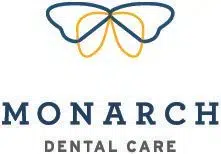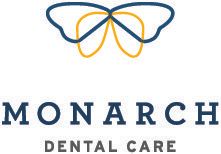
Wisdom Tooth Extraction Recovery Process and Tips
Wisdom teeth, though natural, can sometimes become problematic. Following wisdom tooth removal, a successful recovery hinges on proper aftercare. This guide will equip you with the knowledge needed to navigate the post-operative process under the care of Dr. Alexander Clark at Monarch Dental Care, one of the best dental practices in Prairie Village, KS.
We'll delve into essential aftercare instructions, potential complications, and a timeline for returning to your daily routine. By following these guidelines and Dr. Clark's instructions, you'll ensure a smooth and comfortable recovery. Call (913) 362-4488 to learn more.
What Is Wisdom Teeth Removal?
Wisdom teeth are the third molars that typically erupt in your late teens or early twenties. Sometimes there isn't enough room in your jaw for them to come in properly. This can lead to crowding, impaction (stuck in the jawbone), or other problems. In these cases, your dentist, Dr. Clark at Monarch Dental Care, may recommend wisdom tooth removal.
The procedure itself is typically done in an outpatient setting, with local anesthesia (numbing the area) or sedation. The dentist will make an incision in your gum tissue, remove the tooth, and then stitch the incision closed.
Wisdom Tooth Removal Recovery Timeline
Recovery from wisdom tooth removal usually takes about one to two weeks. Here's a general timeline of what to expect:
- Days one to three: You may experience swelling, pain, and bleeding. Stick to a soft food diet and use cold compresses to reduce swelling.
- Days four to seven: Swelling should start to subside and pain should become more manageable. You can gradually introduce solid foods back into your diet.
- Days seven to 14: Most swelling and pain should be gone. Continue to practice good oral hygiene and avoid strenuous activity.
Follow Dr. Clark's specific post-operative instructions for optimal healing.
Wisdom Tooth Removal Aftercare Instructions
As mentioned previously, following Dr. Clark's aftercare instructions is essential for optimal healing after wisdom tooth removal. These instructions will likely cover:
- Pain Management: Dr. Clark may prescribe pain medication or recommend over-the-counter options like ibuprofen or acetaminophen to manage discomfort.
- Bleeding: Some minor bleeding is normal for the first 24 hours after surgery. Dr. Clark will advise on how to manage any bleeding with gauze pads.
- Diet: Stick to soft foods for the first few days and gradually introduce solid foods back into your diet as tolerated. Avoid anything too spicy, hot, or acidic, which can irritate the extraction site.
- Oral Hygiene: It's important to maintain good oral hygiene even after surgery. Gently brush your teeth, avoiding the extraction site for the first few days. Rinse with warm salt water several times a day to keep the area clean and promote healing.
- Rest: Avoid strenuous activity for the first few days after surgery to allow your body to focus on healing.
Potential Complications After Wisdom Tooth Removal
While uncommon, some potential complications after wisdom tooth removal include:
- Infection: Signs of infection include fever, pus drainage from the extraction site, and severe pain. If you experience any of these symptoms, contact Dr. Clark immediately.
- Dry Socket: This is a painful condition that occurs when the blood clot in the extraction site dislodges too early, exposing the underlying bone and nerves. Symptoms include throbbing pain, bad breath, and a visible empty socket. Again, contact Dr. Clark right away if you suspect a dry socket.
- Numbness or Tingling: In some cases, nerves can be irritated during surgery, leading to temporary numbness or tingling in the lip, tongue, or chin. This usually resolves on its own within a few weeks or months, but be sure to inform Dr. Clark if you experience any numbness or tingling.
Returning to School, Work, and Daily Activities After Wisdom Tooth Removal
Getting back to your daily routine after wisdom tooth removal depends on the complexity of the surgery, your healing process, and the type of activities you do daily. Here's a breakdown for returning to school, work, and daily activities:
School/ Work:
- Generally: Most people can return to school or work within towo to three days after wisdom tooth removal, especially for less physically demanding jobs.
- Factors to Consider:
- Complexity of Surgery: If you had multiple teeth removed or a complex procedure, you may need more recovery time.
- Your Pain Level: If you're experiencing significant pain or discomfort, it's best to prioritize rest and healing.
- Physical Demands: If your job involves strenuous activity, heavy lifting, or talking, you may need to adjust your duties or take additional time off.
- Communication is Key: It's always a good idea to communicate with your school or employer about your surgery and anticipated recovery time.
Frequently Asked Questions
Monarch Dental Care Will Guide You Through Extraction Aftercare
Ensure a smooth recovery after wisdom teeth removal by following post-care instructions! By following the advice from our Prairie Village dentists, you’ll be well on your way to a speedy recovery after wisdom teeth removal.
If you have any questions, please contact Monarch Dental Care today by calling (913) 362-4488 to schedule an appointment. We also welcome patients from Mission, Overland Park, and Leawood.

